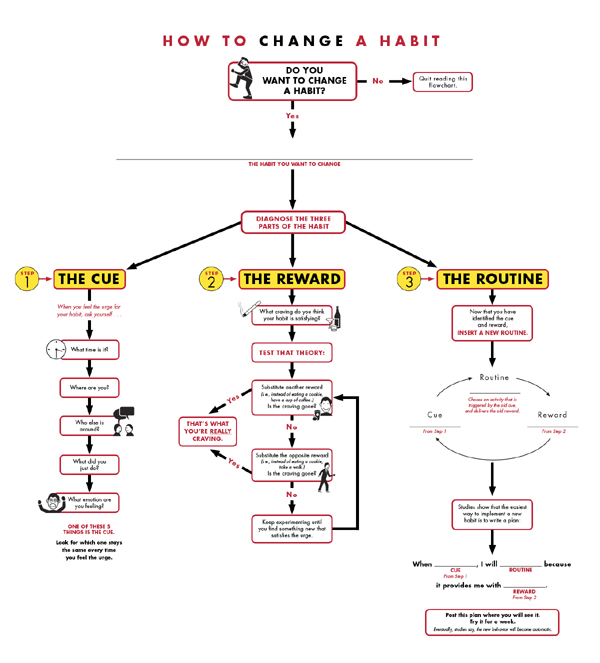Habitual Behavior Develops Valuable Skills
HABITUAL BEHAVIOR DEVELOPS VALUABLE SKILLS: WANT TO REPLACE A HABIT? (ISSUE 104)
By Diane Gold
We all exhibit habitual behavior. We have developed valuable skills as a result of by the very nature of carrying out our habitual acts. We create an expertise in order to do what it takes to get our reward of choice; we repeat and complete and do it again. This prowess builds in us proficiencies which can translate into positive action in our home life, our work productivity and our own creative projects, even if our habitual behavior is not supportive of our own lives. When we choose to replace our habit with one that is positive to our lives, we already have lots of worthwhile skills to make the change and to accompany us on our journey. And when we have a new and healthy habit; the skills we have shaped will remain!
WHAT IS HABITUAL BEHAVIOR?
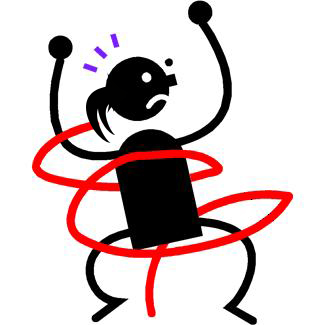 Let’s define habitual behavior as a pattern of action that follows an emotional and/or physical craving that leads to some type of internal intake or ingestion, tick, movement, series of actions, that takes place several times a day, once daily or several times a week, and that, when removed without replacement, causes psychic or physical reaction that can be severely painful. When we change the habit, we actively divert our own attention from the expectation of the old reward we couldn’t live without using the same skill set we created in developing the original habitual behavior; this is how we form a new one.
Let’s define habitual behavior as a pattern of action that follows an emotional and/or physical craving that leads to some type of internal intake or ingestion, tick, movement, series of actions, that takes place several times a day, once daily or several times a week, and that, when removed without replacement, causes psychic or physical reaction that can be severely painful. When we change the habit, we actively divert our own attention from the expectation of the old reward we couldn’t live without using the same skill set we created in developing the original habitual behavior; this is how we form a new one.
ACTION STEPS
1) Ask yourself if you have a habitual behavior. Only you will know the answer if you want it that way.
2) Ask, on a scale from 1 to 10, 10 being most supportive, how supportive this habit is for your life.
3) If your behavior is less than 7, consider changing to another one. (There are action steps and contacts below that can help do this.)
WHAT? I’M WORTHWHILE?
When we have a habitual behavior, it is fair to say we have established some strong core competencies in our lives that, if well directed, make us excellent commodities of financial, social, personal worth. Here are some worthwhile tools we have acquired:
we know how to obtain money for food, even if we spend it to our disadvantage to get the reward a negative habitual behavior;
we know how to obtain money for shelter, even if we spend it to our disadvantage to get the reward from a negative habitual behavior;
we have the personal freedom to consume, which means we are not under military confinement or in jail.
This means we are massively more fortunate than a great percentage of the rest of the world population. Of course, looking at others does our lives no good, since our habitual behavior may be consuming us. The steps below as well as the skills we have created will help us.
THE SKILLS
What is extremely important is the skill set we have acquired to meet the conditions of our habitual behavior. Many mirror the traits of very successful people whose habitual behavior is not a detriment to their lives:
we have courage as we, alone, are dealing with ourselves,
 we have ingenuity enough to have devised a way to live with our habitual behavior in our lives,
we have ingenuity enough to have devised a way to live with our habitual behavior in our lives,
(remembering some not so uncommon ingenuity: Bobby M. had devised a lifestyle for himself around weather. He would steal saleable merchandise from cars to get drug money (which led to his reward feeling) from April to September and then get arrested and jailed from October to March. He was on the street attending to his habitual behavior for the warm weather and getting 3 square meals and adequate shelter, courtesy of the City of New York, in the cold weather.)
we have organization skills in order to get what we want,
we have timing so that we have the object of our habit as frequently as we need it,
we have focus so that we take the right actions to get what we want,
we have drive to get what we want,
we have diplomacy to get what we want,
we have conflict resolution experience from juggling and managing our habitual behavior.
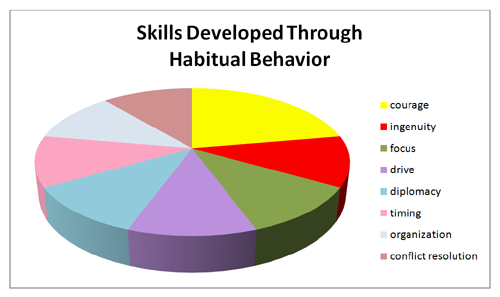
These traits are a great foundation we have already built and mean that we do have something to offer on the other side should we decide to replace our habitual behavior. Many employers, organizations, friends, families value the characteristics in us we already possess.
ACTION STEPS TO CONVERT NEGATIVE HABITUAL BEHAVIOR INTO POSITIVE HABITUAL BEHAVIOR
In order to change a habit, we have to replace it. We do this by replacing the step we take to achieve our reward. In order to achieve this, we need take the same new step at the exact time we get our craving, our trigger, our cue, every time. This action will become familiar and will replace the old action, if we repeat it long enough, knowing it will become more manageable after the first month.
CAUTION
I’m not saying it gets easy. I am saying urges do get manageable and go away, in some of us, for long periods of time. The only requirement is BLIND REPETITION, not strength, not faith, not self-esteem, not friends, not psychological evaluation, not judging ourselves or others, only BLIND REPETITION.
THE ACTION STEPS
1) Immediately drink 1 full large glass of water. This means always have water with you, should you get a cue that previously triggered you to your old habitual behavior, when out in the world.
2) Take a minute out from whatever you are doing and listen to this song:
https://soundcloud.com/benladesh/ben-la-desh-why-dont-you.
Glue yourself to a chair and move the body to the beat for 1 or 2 minutes. Close your eyes, too. If you want to stand up and dance, do it after the first minute. After the first time you use this technique, go get a danceable song you can always take with you, should you get a cue to consume when out in the world. Planning which song and how quickly you can get to it is the key.
And don’t say you can’t figure out a way to be excused from whatever you are doing for one minute. Think of all the manipulating ways you slipped away in the past to fulfill your previous rewards.
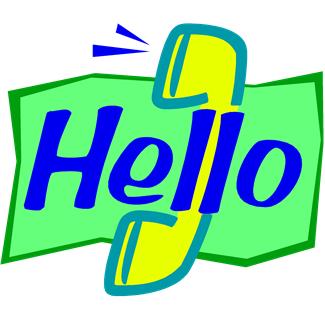 3) Call a friend or acquaintance to talk you through the urge, a friend who is prepared to take your call at any time, day or night. Drink a second glass of water while you are on the phone.
3) Call a friend or acquaintance to talk you through the urge, a friend who is prepared to take your call at any time, day or night. Drink a second glass of water while you are on the phone.
If you don’t have anyone you know who can be available for you – or you’re not comfortable asking – call 2-1-1 from your phone. This works in 90% of the United States. If 2-1-1 does not work, 1-800-552-1183 works from a touch-tone phone and for VoIP phones. 80 countries (including the European Union and Australia) use 112.
4) Immediately upon feeling your urge to act out your habitual behavior, go for a 5 minute run. If you don’t have the ability to go outside; go into the rest room, and run in place. If you are wearing heels, put down a few pieces of paper towel, take off your shoes and go, go, go. Time yourself.
5) Drink another glass of water after all these other activities. By this time, you should have diluted the urge to the point where you can manage it.
6) If your habitual behavior is not overeating, eat a meal immediately. To fulfill this one, it is always necessary to have some sort of meal with you at all times.
7) [or 6) if your habitual behavior is overeating] If you are home or can get to a rest room, brush your teeth as a symbol of starting a clean slate. This means carry a mini tube of toothpaste with you. Remember, this is no weirder than actions you’ve taken to get your old reward.
CONCLUSION
 Most of the time, we develop habitual behavior because we experience grief, anger or limited self-esteem. These can come from abuse, crisis, death, sickness and whatever our mind conjures, since feelings are irrational and show up when they show up. Since we have a myriad of valuable skills from our habitual behavior, we are worthy, since worth is calculated by our collection of respectable, attention-getting skills.
Most of the time, we develop habitual behavior because we experience grief, anger or limited self-esteem. These can come from abuse, crisis, death, sickness and whatever our mind conjures, since feelings are irrational and show up when they show up. Since we have a myriad of valuable skills from our habitual behavior, we are worthy, since worth is calculated by our collection of respectable, attention-getting skills.
Even if we don’t feel it and even if no one has recognized us or commissioned us yet, we are worthy in terms of the definition. In my personal opinion, everyone is worthy in some way, even if evaluators or teachers have not found the way for our subject to exhibit worthwhile behavior.
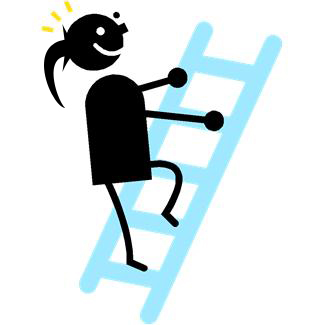
We can recognize, intellectually, anyway, that we have marketable, communication skills of merit by the very nature of our success at managing our habitual behavior. When we use them to the greater good (ours or that of the universe), we flourish. One step at a time, no thoughts, only action, power in our essence, using our valuable skills to change ourselves and the world.
FEEDBACK
Please leave a comment and LIKE.
DIANE GOLD, AUTHOR
Diane Gold, Founder of Warriors of Weight, Turning Habits Into Health, is a mentor in tai chi, kung fu and meditation, a music, fitness and stress expert, dedicated mom, studying plant-based nutrition and habit change.
When we do anything else, we are elevating our skill set. The great set of skills we develop through habit behavior is no exception. She says,
“We have lots of favorable circumstance, as long as we are able to notice it. When we are consumed with negative habitual behavior, our lives are chaotic, messy, explosive; and our vision is dim. We miss opportunities at every turn as we are busy rewarding ourselves. Until we replace our habit.
“We have the group of skills that can change a habit, get us a new career or creative project and take us in a new direction.
“It is not impossible; all it takes is blind repetition which takes only one step. There are many resources available to help along the way, including the action steps in this issue. They work. I know. Put on carriage horse blinders and choose your direction. You can do it.”

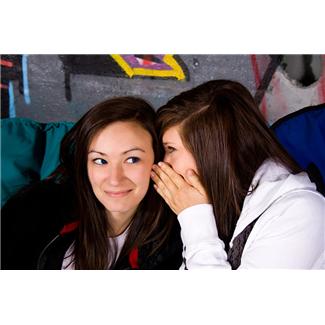 There is one secret to habit change. We don’t need to be college-educated to understand it. We don’t have to have been brought up in a wealthy home to use it. It is the same in every country. It applies to every habit. We all know the concept as it applies to daily life. Yet, it’s still a secret.
There is one secret to habit change. We don’t need to be college-educated to understand it. We don’t have to have been brought up in a wealthy home to use it. It is the same in every country. It applies to every habit. We all know the concept as it applies to daily life. Yet, it’s still a secret.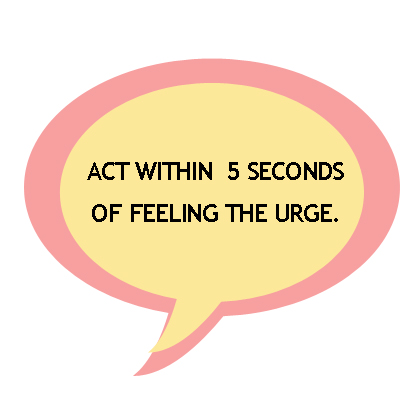 In order to hear it, we must be ready at this very moment to realize its truth; and that if we don’t make it a priority in our lives, we will go another way. Easiest is best, and that’s upon what this secret is based.
In order to hear it, we must be ready at this very moment to realize its truth; and that if we don’t make it a priority in our lives, we will go another way. Easiest is best, and that’s upon what this secret is based. Picture the situation where we get an urge to eat cake. We are on a strict regimen not to include cake in our food plan. If we don’t act with instant motion within five seconds of the urge, we have already given ourselves time enough to plan which way we will walk to the cake store, passing an Automatic Teller Machine along the way, since we keep no cash with us to avoid running out to buy food. Oops, we forgot about the ATM card. Or figuring out how to run up an account with the local grocer if we have no cash, if we have remembered not to have an ATM card around.
Picture the situation where we get an urge to eat cake. We are on a strict regimen not to include cake in our food plan. If we don’t act with instant motion within five seconds of the urge, we have already given ourselves time enough to plan which way we will walk to the cake store, passing an Automatic Teller Machine along the way, since we keep no cash with us to avoid running out to buy food. Oops, we forgot about the ATM card. Or figuring out how to run up an account with the local grocer if we have no cash, if we have remembered not to have an ATM card around. Imagine it’s the end of the work day, we are closing up our store and start getting the urge to join all our buddies across the street and drink alcohol. Yet, we know, at this time, we have decided to abstain from alcohol because it does not support us. So, when we feel that craving, we have a choice: we can act within 5 seconds and take a new action that does not involve alcohol OR wait and go drink alcohol, a behavior we already know is not working for us. If the people at the pub are really our buddies, we will see them later, not in the bar.
Imagine it’s the end of the work day, we are closing up our store and start getting the urge to join all our buddies across the street and drink alcohol. Yet, we know, at this time, we have decided to abstain from alcohol because it does not support us. So, when we feel that craving, we have a choice: we can act within 5 seconds and take a new action that does not involve alcohol OR wait and go drink alcohol, a behavior we already know is not working for us. If the people at the pub are really our buddies, we will see them later, not in the bar.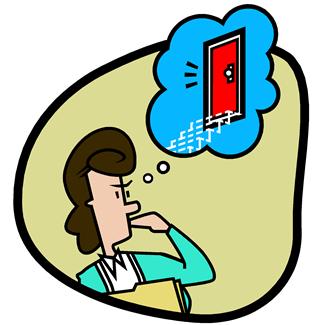 We have a very short window of opportunity in which to execute the one secret to habit change. It’s usually in that five second range that we must act. If we don’t take a new action within that time, we will habitually do our old behavior. And changing our habit will wait on the sidelines another day.
We have a very short window of opportunity in which to execute the one secret to habit change. It’s usually in that five second range that we must act. If we don’t take a new action within that time, we will habitually do our old behavior. And changing our habit will wait on the sidelines another day.
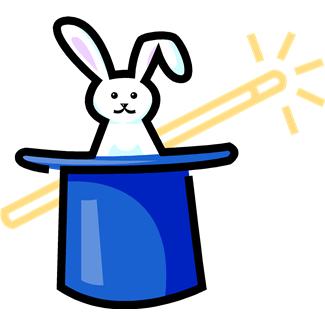 Do it. It is massively impactful, requires little activity, not much effort other than the effort of doing magic on or tricking one’s own mind. And it works on all the urges to a large degree.
Do it. It is massively impactful, requires little activity, not much effort other than the effort of doing magic on or tricking one’s own mind. And it works on all the urges to a large degree.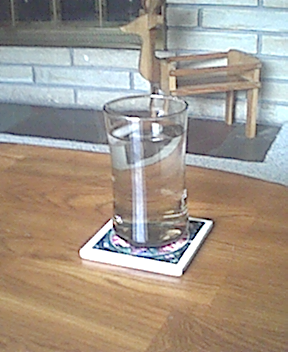 Water works on habit change. It has a profound influence on whatever we are doing. If we are working on changing a habit, we need it. If we are thirsty, the body is already deprived, but it hydrates us. Water flushes out toxins; it balances the chemicals that make us human; it combines with the nutrients from our food. It keeps our health.
Water works on habit change. It has a profound influence on whatever we are doing. If we are working on changing a habit, we need it. If we are thirsty, the body is already deprived, but it hydrates us. Water flushes out toxins; it balances the chemicals that make us human; it combines with the nutrients from our food. It keeps our health. Before sitting down to eat (or even if we eat standing up), pour two glasses of water for ourselves. Before we allow ourselves to take a bite to eat, we drink all the water. We do this at every meal, including snacks.
Before sitting down to eat (or even if we eat standing up), pour two glasses of water for ourselves. Before we allow ourselves to take a bite to eat, we drink all the water. We do this at every meal, including snacks. We can think of the beautiful water supply from which it came, if it is clean water and conjure a picture of wonderful waterfalls surrounding it. Secondly, we can honor those who do not have clean water or any water at all by being grateful for the water in front of us. This mental exercise helps insure the water is drunk with no excuses.
We can think of the beautiful water supply from which it came, if it is clean water and conjure a picture of wonderful waterfalls surrounding it. Secondly, we can honor those who do not have clean water or any water at all by being grateful for the water in front of us. This mental exercise helps insure the water is drunk with no excuses.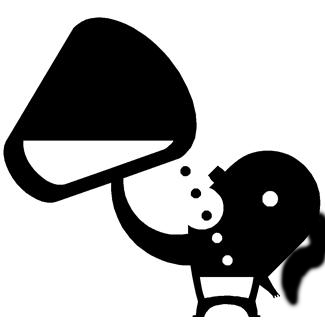
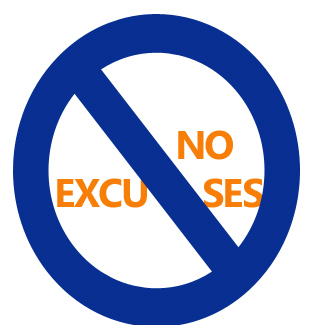 1) It’s not always convenient to stop and get water.
1) It’s not always convenient to stop and get water.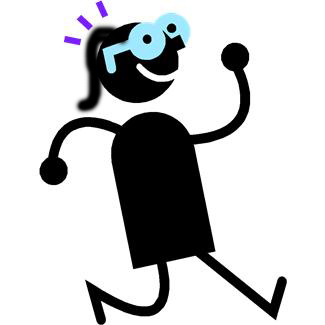 3)
3) ACTION STEP BEFORE RUNNING TO EAT
ACTION STEP BEFORE RUNNING TO EAT The first 8 words of the previous sentence are probably the most common 8 words in our mind. The 9th word, in this case, pertains to weight. But anything can be put in its place. We all, at one time or other, feel that we can’t find love because of some way we are.
The first 8 words of the previous sentence are probably the most common 8 words in our mind. The 9th word, in this case, pertains to weight. But anything can be put in its place. We all, at one time or other, feel that we can’t find love because of some way we are. Of course, we know that smiling is better than frowning. It actually makes us happier, studies have shown. And smiles bring people to us; frowns, unfortunately, push people away. So what do you say to a great exercise for smiling?
Of course, we know that smiling is better than frowning. It actually makes us happier, studies have shown. And smiles bring people to us; frowns, unfortunately, push people away. So what do you say to a great exercise for smiling? 9) Doesn’t the smile make you laugh when you feel the face breaking into a smile? It does make me laugh. It is quite fascinating how the entire face changes under the skin from such a thing as a smile.
9) Doesn’t the smile make you laugh when you feel the face breaking into a smile? It does make me laugh. It is quite fascinating how the entire face changes under the skin from such a thing as a smile.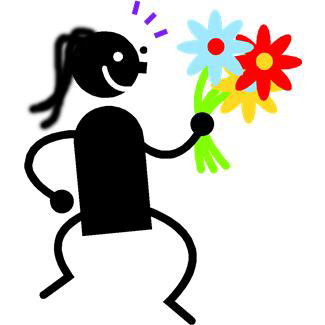

 We have to keep in mind that when we do something over and over, our synaptic pathways get worn in a certain way to crave and satisfy, which is why we always have a tendency to that particular habit. That’s why we have to form “parallel patterns” (in the words of Julia Layton, contributing writer at How Stuff Works) so that we become satisfied, replacing the old with the new behavior, eventually.
We have to keep in mind that when we do something over and over, our synaptic pathways get worn in a certain way to crave and satisfy, which is why we always have a tendency to that particular habit. That’s why we have to form “parallel patterns” (in the words of Julia Layton, contributing writer at How Stuff Works) so that we become satisfied, replacing the old with the new behavior, eventually. The trick is to do the new behavior within 30 seconds of getting the urge so that it doesn’t build up in the mind. Not allowing time to lapse will help us not to get sucked into the behavior we want to dump. That’s the key.
The trick is to do the new behavior within 30 seconds of getting the urge so that it doesn’t build up in the mind. Not allowing time to lapse will help us not to get sucked into the behavior we want to dump. That’s the key.